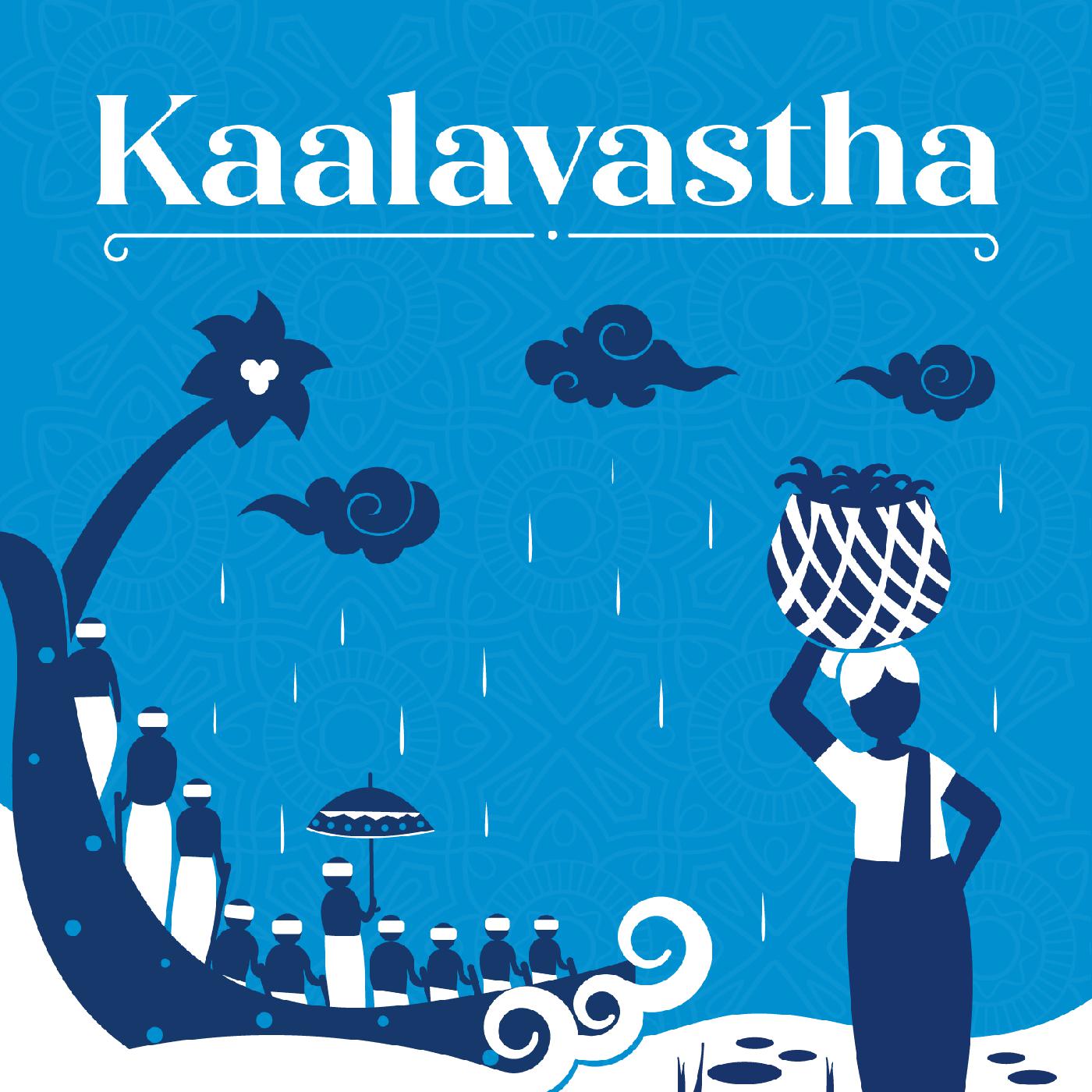
Kaalavastha can be roughly translated as 'weather' in Malayalam. Monsoons in Kerala bathe the state in verdant splendor. Even as this tropical change is romanticized by Keralites, the monsoon of 2018 brings back painful memories of loss and destruction. With hundreds of lives lost and critical lifelines of the state adversely impacted, the tenacity and perseverance of the people of Kerala refused to bring the state to a halt. Instead, the floods gave an opportunity to pave the way for 'Nava Keralam'- a new Kerala on a path to a progressive development trajectory. This podcast series will introduce listeners to stories of resilience from the state.
In this last and final episode of our 6-part series on climate change and the meaning of resilience, we delve into Kerala’s constant efforts to support social progress in parallel to its development journey. We look at the assets Kerala chose to develop preemptively, in anticipation of the next disaster: a strong and agile grassroot army of volunteers, robust women self-help avenues, detailed disaster risk management even at the local level, and most importantly pulling together lessons learnt from past disasters. It is the “proximity to the lived experience of disaster” after the 2018 Nipah virus outbreak and the devastating floods of 2018 and 2019 that has helped people act quickly and organize lasting frameworks for resilience. Will Kerala be able to address its vulnerabilities and protect itself for future generations?
Thanks to Jose Shailaja Teacher, Sarada Muraleedharan, Mridul Eapen, Soumya Kapoor, Professor Jiju Ulahanan, Dr Sekhar Lukose Kuriakose, Bala Menon, Heather Fernandes, and Illika Sahu. Kaalavastha is narrated by Radhika Viswanathan. It is researched, written and produced by Radhika Viswanathan and Samyuktha Varma. Erwick D’souza composed the music.
For more information go to https://www.worldbank.org/keralapodcast or email keralapodcast@worldbankgroup.org
Kerala’s economy relies heavily on things that are native and unique to the State - its natural resources, traditions, and heritage. It chose to skip the wave of industrialization, instead developing these other indigenous economies - the best known of which is tourism. Through some very clever marketing this tiny State has made itself a global destination. But even ‘God’s Own Country’ isn’t immune to the recent and successive natural disasters. Traditional sectors like handloom, fishing, and cultural tourism have suffered. Kerala has a strong ‘Responsible Tourism’ mission, committing to economic empowerment, environmental, and social responsibility. A question is emerging: What institutional responses are needed to significantly protect and revive these native sectors, making them self-sustainable and resilient to future disasters and economic shocks?
Thanks to Jose Dominic, Gopinath Parayil, Lakshmi Menon, Sreejith Jeevan, P Robin, Bala Menon, Heather Fernandes, and Illika Sahu. Kaalavastha is narrated by Radhika Viswanathan. It is researched, written and produced by Radhika Viswanathan and Samyuktha Varma. Erwick D’souza composed the music.
For more information go to https://www.worldbank.org/keralapodcast or email keralapodcast@worldbankgroup.org
CC Attributions:
Weaving mills and factories » Bhagalpur, silk weaving handlloom.wav by phonoflora
Kerala-4.wav by xserra
Over the past 5 years, the annual monsoons in Kerala have been changing dramatically. Climate change has brought with it rainfall deficits, severe heat waves, rare cyclone events, droughts, and more all of which have impacted the lives and livelihoods in the state. Then came the devastating floods of 2018. The worst floods seen in nearly a century washed away precious lives, property, resources and cultural memories. However, the floods also brought with it an incredible surge of humanity, as Keralites and people from all over the world came together to respond to immediate needs. The floods of 2019 were just as ferocious, underscoring the unpredictable nature of climate. Join us as we find out how Kerala is reckoning with this history of climate change to build back to be resilient to future disaster events.
Thanks to Professor Abhilash, Bala Menon, Heather Fernandes, Illika Sahu, Sreedevi Pillai, Sobha Viswanath and Viju B. Kaalavastha is narrated by Radhika Viswanathan. It is researched, written and produced by Radhika Viswanathan and Samyuktha Varma. Erwick D’souza composed the music.
Attributions:
Licensed from Freesound.org under Creative Commons Attribution License: "Rain, Moderate, C.wav" by InspectorJ (www.jshaw.co.uk). “Waterfall” Straget. Licensed from Freesound.org under Creative Commons Noncomnmercial, Attribution License: “Drizzle” by Soundatic.
The Kaalavastha podcast series aims to capture some of the stories behind how Kerala is building a more resilient future for itself. Through a series of 6 episodes, we dive deep into God’s Own Country, following multiple protagonists on this journey, and getting a behind-the-scenes perspective from the communities, government, scientists, diaspora, World Bank staff, and even the cultural voice of Kerala itself!